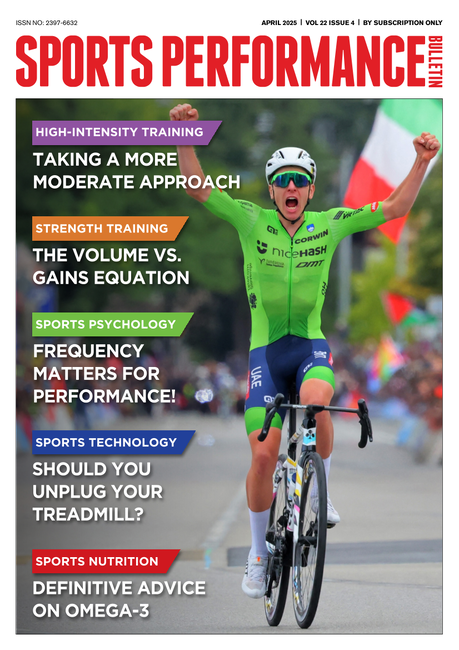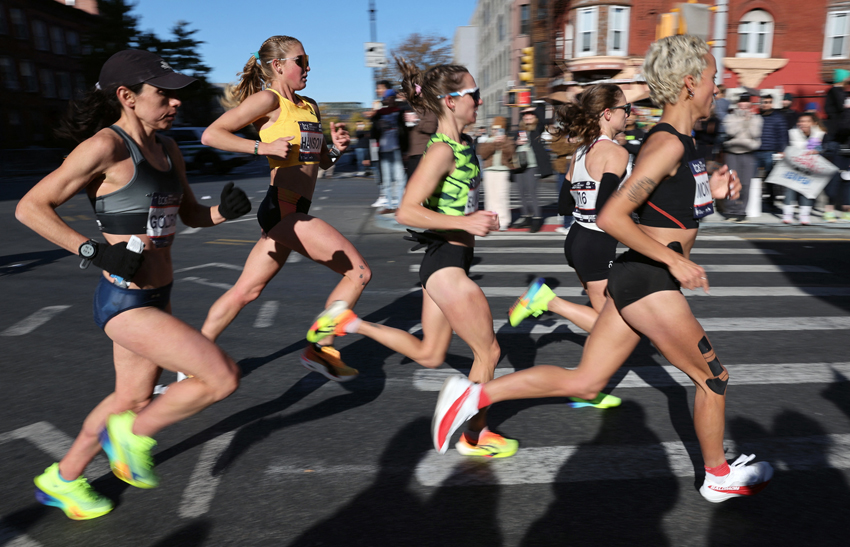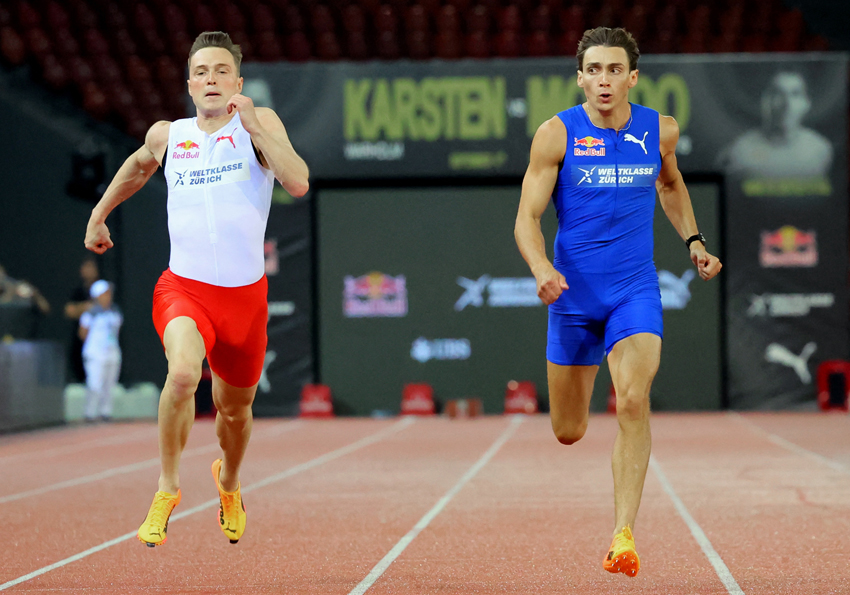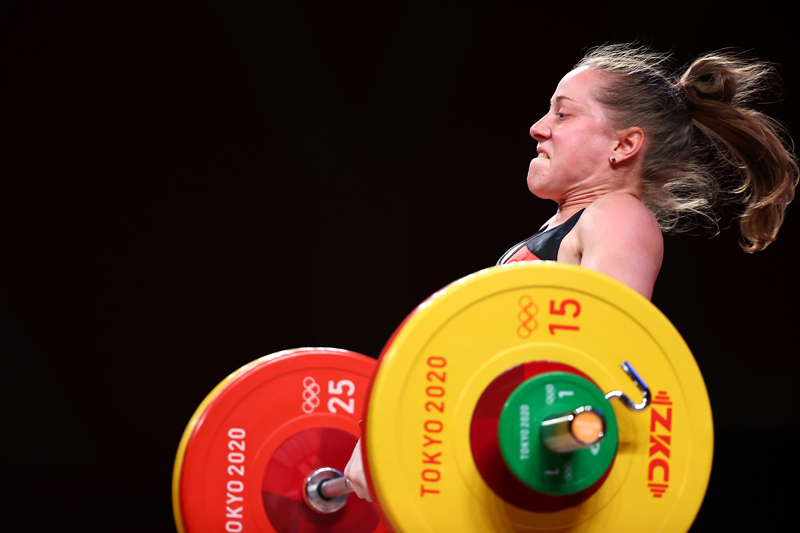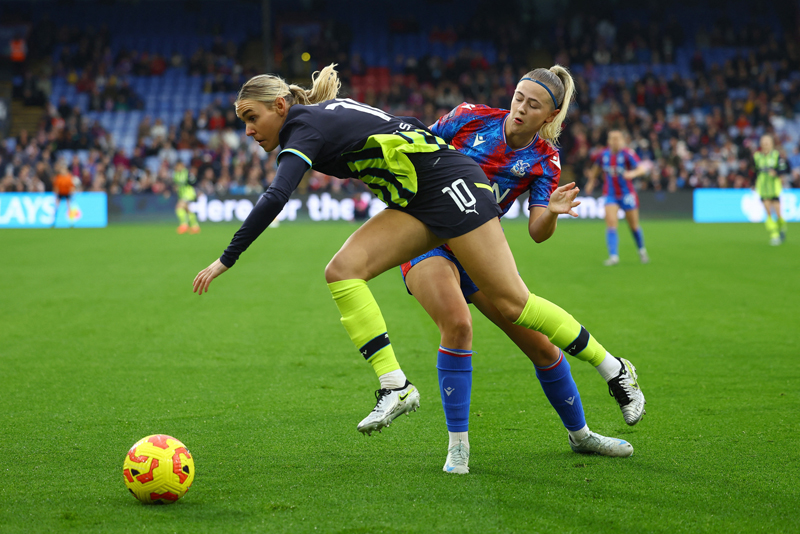Sports drinks on the move: yes or no to protein?

Do carbohydrate energy drinks containing added protein provide additional benefits for endurance athletes while on the move? SPB looks at the evidence
Endurance athletes who undertake long training sessions or races can find that their body’s stores of muscle carbohydrate can become severely depleted. This muscle carbohydrate (more correctly known as glycogen) can be considered as the body’s ‘premium grade’ fuel for intense exercise and as such, even modest glycogen depletion can lead to a significant drop in performance.Although it’s possible to try and top up consume conventional high-carbohydrate foods such as bread, pasta, potatoes etc. on the move, this strategy is not ideal, especially when the work rate is high, and particularly for runners. The digestion required for these solid foods slows down the rate at which the released carbohydrate finds its way to the muscles, and most people also find it extremely difficult to consume solid food during vigorous exercise without suffering adverse effects such as stomach cramps, abdominal bloating etc. A well-formulated energy drink on the other hand can be absorbed rapidly and is well tolerated.
Conventional carbohydrate drinks
The primary purpose of a conventional carbohydrate energy drink therefore is to supply carbohydrate in a rapidly absorbable form in order to help provide fuel for hardworking muscles during vigorous exercise. This extra carbohydrate slows down the rate of glycogen depletion, prolonging the time to exhaustion. Numerous studies have shown that athletes can improve endurance performance by consuming carbohydrate drinks during exercise, especially in prolonged activities (ie more than two hours) at race-intensity. Most guidelines recommend consuming sports drinks with 4-8% carbohydrate at regular intervals during exercise and under laboratory conditions, 600-1400ml of fluid and 30-60+ grams of carbohydrate in the form of glucose per hour appear to maximize the performance benefits(1). When consuming multi-transportable glucose-fructose energy drinks however, consumption of up to 90g per hour appears to produce even greater benefits (see this article)(2).Carbohydrate energy drinks also promote recovery from heavy exercise, in particular by improving the rates of carbohydrate replenishment in the muscles after heavy training. A study carried out at the University of Birmingham, UK examined cyclists who performed eight days of intensified training while consuming low or high-carbohydrate intake during and immediately following exercise(3). When consuming the sports beverages with adequate carbohydrate content (6% during exercise, 20% post-exercise), the cyclists maintained better endurance performance, had lower perceptions of effort during training, and experienced fewer symptoms of overtraining. In a nutshell, the evidence for the use of conventional carbohydrate energy drinks for promoting improved performance and recovery is overwhelming and as such, they should be seriously considered by all endurance athletes who are performing high volumes of training or are competing regularly.
Carbohydrate/protein energy drinks
Although plain carbohydrate energy drinks have proved their worth over the past three decades, a number of variants of these drinks began to spring up in the early 2000s, one of which was the ‘carbohydrate-protein energy drink’. These beverages are similar to conventional carbohydrate-only drinks but with one important difference – they also contain protein in addition to carbohydrate. Although their compositions vary, carbohydrate/protein energy drinks typically supply around 80% carbohydrate and 20% protein (often in the form of whey protein, which is rapidly absorbed). The potential advantages of carbohydrate-protein sports drinks have centered on two primary claims:- Enhanced endurance performance
- Better recovery following training
Evidence for carbohydrate/protein drinks
In one of the earliest studies, researchers examined cycling performance during three hours of varied-intensity cycling, intended to simulate competitive cycling conditions(4). Following this period, the athletes rode to exhaustion at a standardized intensity. During the ride, the subjects drank either carbohydrate-only or a carbohydrate-protein sports drink. A placebo drink (containing no carbohydrate or protein) was also used as a control. The results showed that while both sports beverages significantly outperformed the placebo beverage, subjects rode significantly longer in the standardized test (26.9min) when receiving a carbohydrate-protein beverage, than when receiving carbohydrate-only (19.7min).In another study, US researchers examined ‘time-to-exhaustion’ performance in cyclists while consuming sports beverages(5). A group of male cyclists rode 29% longer when consuming a carbohydrate-protein beverage compared to a carbohydrate-only drink. In addition, these findings were replicated in a mixed group of male and female cyclists, with cyclists riding 13% longer when they drank the carbohydrate-protein formulation(6). Figure one shows a summary of results some of the early studies in this area.
Figure 1 – Studies comparing carbohydrate-only and carbohydrate-protein beverages

These results were encouraging, suggesting that carbohydrate-protein drinks can enhance performance over and above carbohydrate drinks during a bout of exercise. Moreover, a paper published at around the same time (2008) suggested that carbohydrate-protein drinks may also be advantageous for endurance performance after consecutive-day exercise bouts (arguably more representative of the conditions under which competitive athletes train)(7). In this study, subjects cycled at 75% VO2max (moderate effort) for 90 minutes then rode to exhaustion at 85% VO2max (hard) on three occasions:
- Before a 2-week period of supplementation with drinks containing 3.6% carbohydrate plus 1% amino acids (carbohydrate-protein) or 4.6% carbohydrate-only beverages (both drinks contained the same number of calories).
- On two consecutive days immediately following this period.
Although much of the research into carbohydrate-protein drinks has been carried out using cyclists, studies using other athletes have also been positive. For example, a study on Brazilian footballers showed that compared to a carbohydrate-only drink, a carbohydrate-protein drink produced a significant increase in exercise tolerance during simulated match conditions(8). The researchers also noted that the carbohydrate-protein drink also reduced feelings of self-reported fatigue in the players compared with the use of the carbohydrate-only drink.
Muscle mass, muscle recovery and muscle damage
The evidence for the performance benefits of carbohydrate-protein drinks from these early studies looks promising enough. But can these drinks help to reduce muscle damage during exercise, thereby accelerating recovery and helping to preserve (or build) muscle mass? If so, there could be a number of additional benefits derived from these drinks. Although many endurance athletes tend to focus most of their attention on aerobic conditioning, the maintenance and repair/growth of muscle tissue is critical for long-term success too. This is because all other things being equal, an athlete who can reduce muscle damage during training and recover more rapidly should perform better during subsequent training/competition, develop better strength and power for high-intensity demands, and be at lower risk of picking up an injury.Professor Mike Saunders, a leading US researcher into protein and exercise (who incidentally sits on our board of advisers), has conducted a number of studies into the effects of consuming carbohydrate-protein drinks during exercise. In two initial studies, he and his team observed that blood-markers of muscle damage and muscle soreness were significantly reduced when athletes consumed carbohydrate-protein beverages(5,6). However, because carbohydrate-protein beverages were provided both during exercise and immediately post-exercise, it was difficult to determine if these benefits were the result of protein ingested during exercise.
In a further therefore, he examined the effects of a carbohydrate-protein beverage provided at 15-minute intervals during prolonged cycling, but not afterwards(9). Consumption of the carbohydrate-protein drink resulted in significantly lower markers of muscle damage than a non-caloric placebo, or carbohydrate-only beverages. Even more importantly for cycling performance, the enhanced muscle recovery resulted in significantly better muscle function (measured using a leg-extension test of the quadriceps) than all other beverages 24-hours following the cycling trial (see figure 2).
Figure 2 - Post-exercise responses in muscle recovery with and without protein-carbohydrate during exercise(9)

Not every study into carbohydrate-protein drinks and muscle recovery has produced positive results. For example, in female runners who ran downhill for 30 minutes to generate eccentric muscle damage, carbohydrate-protein drinks given post exercise failed to enhance recovery of exercise-induced muscle injury compared to a standard carbohydrate-only drink(10). On balance however, the evidence to date that carbohydrate-protein drinks aid recovery and reduce muscle damage is persuasive.
Carbohydrate-protein drinks and muscle mass
A major challenge of high-volume, high-intensity training is the potential loss of muscle mass induced by such high training volumes, in turn leading to decreases in power and strength. This is far from ideal, especially for sprinters. However, groundbreaking research on carbohydrate-protein consumption during strength training carried out by Dutch scientists last year makes fascinating reading(11). Ten subjects ingested either carbohydrate-only or carbohydrate with added protein hydrolysate (a pre-digested form of protein) during a 2-hour resistance-training session, after consuming a standardized diet throughout the day.The results showed that compared to the carbohydrate-only drink, the carbohydrate-protein drink lowered whole-body protein breakdown rates by 26% and raised protein synthesis by 33%, respectively. As a consequence, whole-body net protein balance was negative (ie protein being broken down overall) when consuming a carbohydrate-only drink, whereas a positive net balance (ie protein synthesis) was achieved in the protein/carbohydrate trial! The important point here is that even when subjects had eaten normally through the day, taking a protein/carbohydrate drink significantly boosted muscle protein synthesis; the potential benefits for cyclists trying to build or maintain strength are obvious.
In addition to increased performance, accelerated recovery and reduced muscle damage, some research has indicated that adding small quantities of protein to carbohydrate drinks may also improve thermoregulation in hot conditions. For example, a study carried out on cyclists found that carbohydrate-protein supplementation during a 5-day period of aerobic training in hot conditions produced an increase in blood plasma volume and improved thermoregulation capacity compared to plain carbohydrate supplementation(12).
Can carbohydrate-protein drinks boost performance?
There’s no doubt that where pure endurance – ie the ability to keep going for longer – is the goal, carbohydrate drinks containing small amounts of added protein seem to offer an advantage over carbohydrate-only drinks. However, can consuming carbohydrate-protein drinks actually improve performance – ie make athletes faster? Surprisingly, there’s little data on this topic.In a 2011 study, British researchers looked at the performance of 28 competitors in the TransAlp mountain bike stage race who consumed either a carbohydrate-electrolyte drink or a carbohydrate-electrolyte drink with added protein(13). The researchers found that although markers of muscle damage following the event were the same with both drinks, consumption of the carbohydrate-protein drink significantly improved exercise performance (total race time for carbohydrate-protein 2,326 minutes vs. 2,591 minutes for the carbohydrate-only drink). However, there’s a big caveat to this study; during this ride, the average mean ambient temperature was very high 35°C (95F). In this study, the carbohydrate-protein drinks enhanced fluid retention and reduced thermal strain, which means the performance gains may have occurred purely as a result of better hydration and reduced thermal stress.
A later study compared the effects of carbohydrate and carbohydrate-protein ingestion on self-regulated simulated multiple-sprint sport performance(14). Nine participants completed two trials of an intermittent shuttle test involving 4 x 15 min blocks of regulated exercise followed by 2 x 15 min blocks of self-regulated exercise. Participants consumed 2.5mls per kilo of an 8% carbohydrate or 6% carbohydrate plus 2% whey protein beverage every 15 minutes (drinks that were calorie matched). The carbohydrate-protein drink produced slightly higher running speeds and distance covered but the gains were too small to be considered statistically significant. However, when analyzing the performance in the final 15 minutes of the trial only, consuming the carbohydrate-protein drink produced an improvement of 2.7%, which was significant.
Review studies
Although the evidence for adding protein into carbohydrate drinks appears persuasive, not all researchers agree that using these drinks always trumps plain carbohydrate drinks. A 2014 review study (a study that pools data from previous studies on the same topic) looked at data on carbohydrate-protein drink use in healthy active adults less than 50 years of age. In particular, it evaluated the effects of protein supplements in combination with carbohydrate on endurance performance metrics such as time-to-exhaustion, time-trial, or total power output during sprint intervals. Overall, 28 articles were analyzed, 11 of which focused on ingestion during an acute bout of exercise.The researchers concluded that when carbohydrate-only supplementation was delivered at optimal rates during or after exercise, protein supplements provided no further ergogenic effect, regardless of the performance metric used - ie time-to-exhaustion, time-trial, or total power output during sprint intervals. There were limitations to this study however; firstly, the subjects were not exclusively athletes engaged in structured training or racing. Secondly, many of the included studies only looked at a single bout of exercise – not repeated bouts (ie more representative of an athlete’s training habits.
In contrast, a later review study analyzed 20 previous papers where carbohydrate-protein beverages were taken during exercise. In this analysis, 13 papers showed positive results when sports drinks with protein and carbohydrate were compared to beverages with carbohydrates and electrolytes alone, or a placebo. Overall, the researchers concluded that combined carbohydrate-protein intake during exercise produces an ergogenic effect on endurance performance when assessed by time to exhaustion but there was not enough evidence to confidently conclude a benefit for other types of performance measures.
Optimum protein content of sports drinks
Because there’s relatively little research into this topic area, it’s difficult to recommend optimal levels of protein in sports drinks. In addition, the optimal amount of protein is probably influenced by other factors such as the amount of fluid and carbohydrate you are consuming, your personal stomach tolerance etc.Professor Mike Saunders and his co-workers compared three carbohydrate beverages (6% carbohydrate each – 60 grams per litre) which contained differing amounts of protein and observed that endurance performance was enhanced with small amounts of protein (10-20 grams per litre of drink - ie around 15-30% of total calories), but no further improvements in performance were present with additional protein. However, evidence of enhanced muscle recovery was not observed at the lowest levels of protein intake, indicating that for post-exercise recovery, higher levels of protein may be needed.
Although it’s difficult to make specific recommendations, a good general recommendation is that protein content should be relatively low (2% by volume or less – ie a ratio of one part of protein to three or four parts of carbohydrate) in beverages consumed during exercise. However, the protein content should probably be higher in beverages consumed post-exercise, in order to optimize recovery – perhaps closer to one part of protein to two or three parts of carbohydrate.
Practical advice for athletes
There’s a lot of information here so how can athletes synthesize this into best practice? Here are some useful guidelines for ‘during exercise’ feeding:- The evidence suggests that consuming carbohydrate-protein drinks extends time to exhaustion; using these drinks is therefore recommended during long-distance events (eg ultra races, long-distance sportives etc) where completing the distance is the goal.
- Because they appear to reduce muscle damage during exercise, carbohydrate-protein drinks are also recommended for multi-stage/day events, where repeated day-on-day performance and optimum recovery are essential.
- In events where conditions are hot and humid, these drinks may also offer an advantage due to improved hydration and reduction in thermal stress.
- Athletes who are seeking to retain muscle mass during a period of high-volume training may also benefit from using carbohydrate-protein drinks, where reduced muscle damage will help conserve muscle protein.
- Where maximal ‘on-the-day’ performance is the goal in a non-ultra race situation, there’s no evidence that carbohydrate-protein drinks confer an advantage. Indeed, by replacing a portion of carbohydrate (1/5th) in these drinks with protein, there could even be a negative effect.
General tips for sports drink use
- Improved endurance performance has been reported with as little as 25 grams/hour of carbohydrate intake. Further benefits have been reported up to 60-75+ grams/hour in laboratory studies, especially when using glucose-fructose drinks. Therefore, aim to maximize your intake of carbohydrate up to this upper level during long, intense competitions;
- Consuming carbohydrate drinks containing small amounts of protein (15-20% of total calories) may further improve ‘time-to-fatigue’ endurance performance, and initiate improved post-exercise recovery. This is especially the case in hot/humid conditions.
- Whatever sports drink you use, consume regular, small doses beginning 10-15 minutes into exercise to maximize intake levels and practice ingesting fluid/carbohydrate during long training sessions. To maximize performance, consume the highest level you can consistently tolerate without difficulty.
- To maximize post-endurance exercise recovery, consume a post-exercise carbohydrate-protein mixture with a somewhat higher concentration of protein (25-35% of total calories). Examples are 2 to 1 or 3 to 1 recovery drinks. As a rule of thumb, athletes performing longer and more frequent training sessions are advised to use higher carbohydrate recovery drinks – ie 3 to 1.
1. J Athletic Training 2000; 35:212-214
2. J Appl Physiol 2006; 100:807-816
3. J Appl Physiol 2004; 97:1245-1253
4. Int J Sport Nutr Exerc Met 2003; 13: 388-401
5 Med Sci Sports Exerc. 2004 Jul;36(7):1233-8.
6. J Strength Cond Res. 2007 Aug;21(3):678-84
7. Int J Sport Nutr Exerc Metab. 2008 Oct;18(5):473-92
8, Clinics (Sao Paulo). 2008 Feb;63(1):27-32
9. Int J Sport Nutr Exerc Metab. 2008 Aug;18(4):363-78
10 Int J Sport Nutr Exerc Metab. 2008 Feb;18(1):1-18
11. Am J Physiol Endocrinol Metab. 2008 Jul;295(1):E70-7.
12. FASEB Journal. 2007;21:919.2
13. Eur J Appl Physiol . 2011 Sep;111(9):2051-61.
14. J Sports Sci. 2013;31(4):361-9.
15. Peak Performance 2008. (269) p1-4
You need to be logged in to continue reading.
Please register for limited access or take a 30-day risk-free trial of Sports Performance Bulletin to experience the full benefits of a subscription. TAKE A RISK-FREE TRIAL
TAKE A RISK-FREE TRIAL
Newsletter Sign Up
Testimonials
Dr. Alexandra Fandetti-Robin, Back & Body Chiropractic
Elspeth Cowell MSCh DpodM SRCh HCPC reg
William Hunter, Nuffield Health
Newsletter Sign Up
Coaches Testimonials
Dr. Alexandra Fandetti-Robin, Back & Body Chiropractic
Elspeth Cowell MSCh DpodM SRCh HCPC reg
William Hunter, Nuffield Health
Keep up with latest sports science research and apply it to maximize performance
Today you have the chance to join a group of athletes, and sports coaches/trainers who all have something special in common...
They use the latest research to improve performance for themselves and their clients - both athletes and sports teams - with help from global specialists in the fields of sports science, sports medicine and sports psychology.
They do this by reading Sports Performance Bulletin, an easy-to-digest but serious-minded journal dedicated to high performance sports. SPB offers a wealth of information and insight into the latest research, in an easily-accessible and understood format, along with a wealth of practical recommendations.
*includes 3 coaching manuals
Get Inspired
All the latest techniques and approaches
Sports Performance Bulletin helps dedicated endurance athletes improve their performance. Sense-checking the latest sports science research, and sourcing evidence and case studies to support findings, Sports Performance Bulletin turns proven insights into easily digestible practical advice. Supporting athletes, coaches and professionals who wish to ensure their guidance and programmes are kept right up to date and based on credible science.


